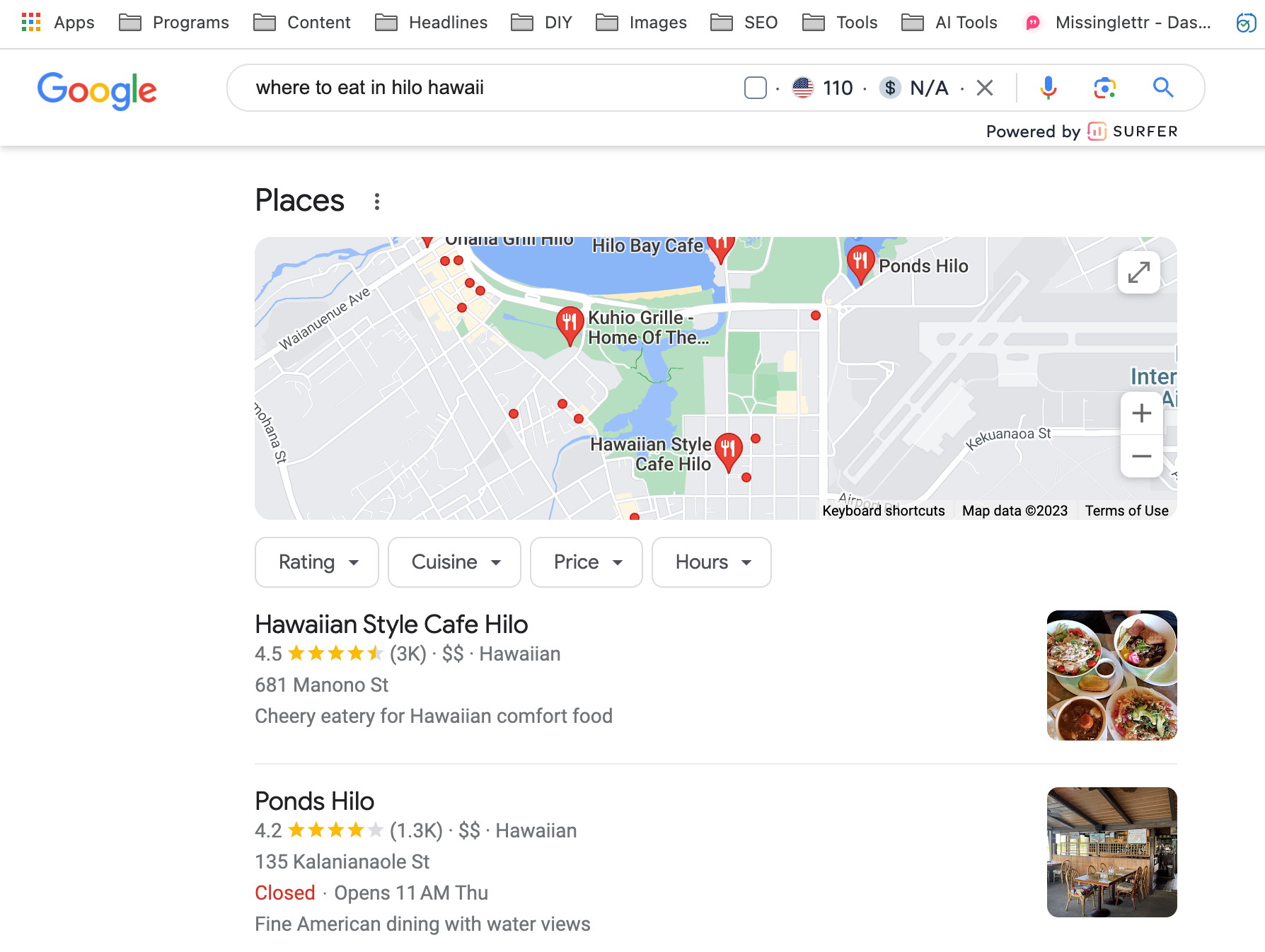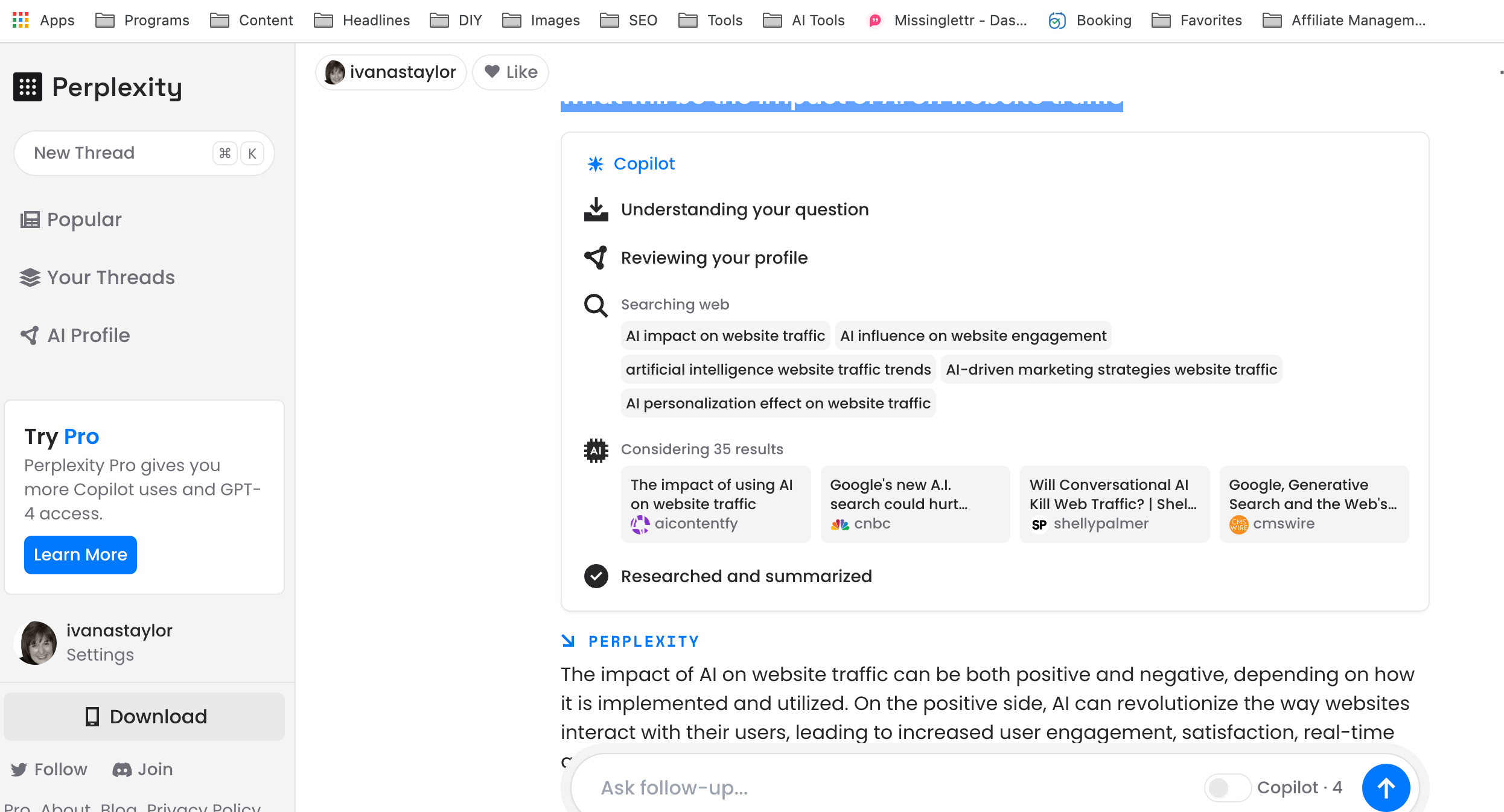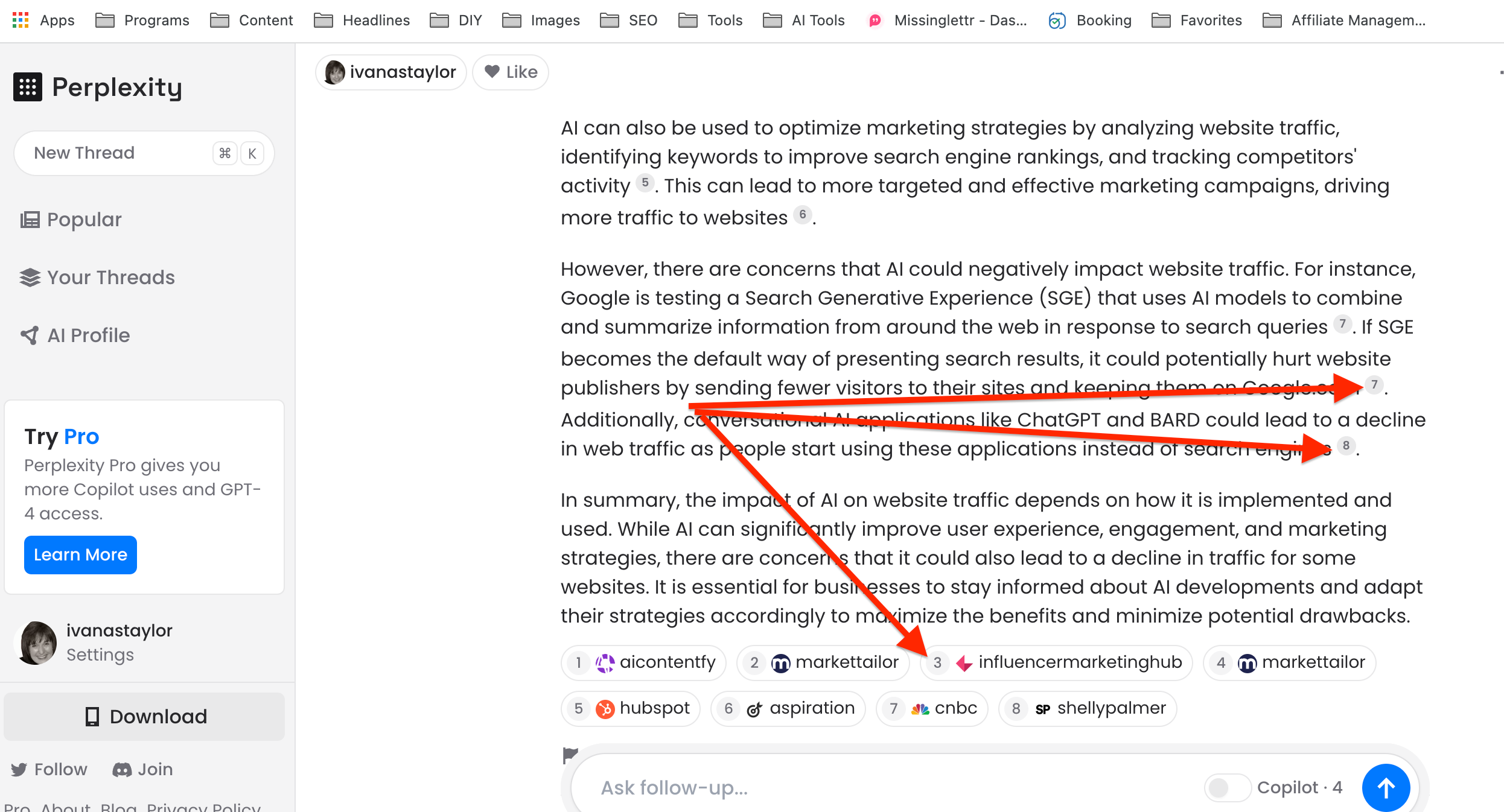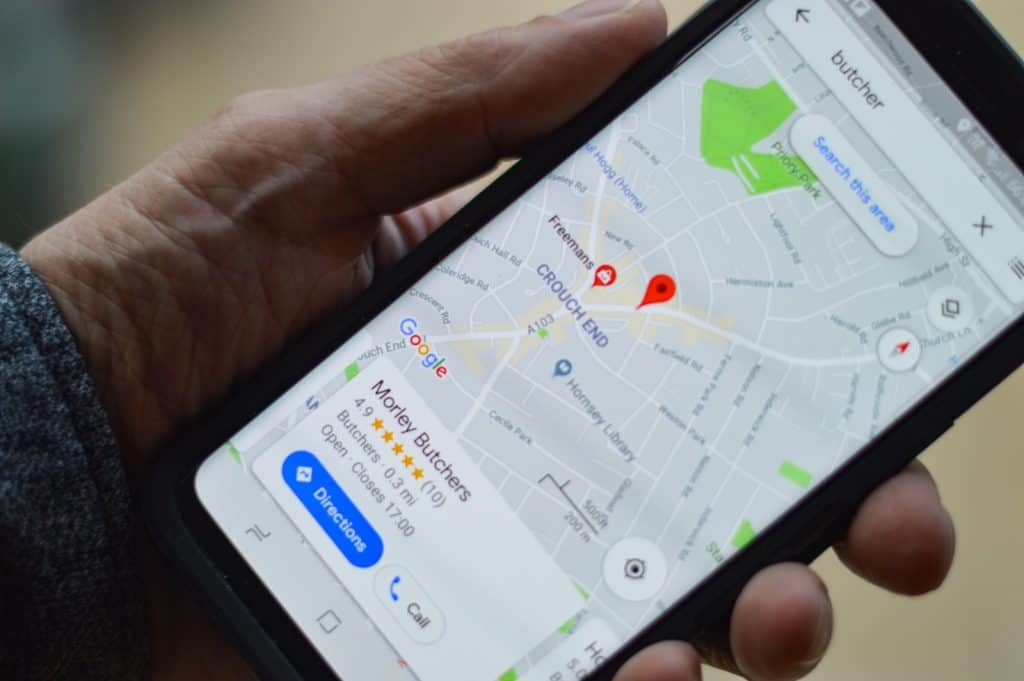In This Article

If your business makes money from SEO-driven website traffic, buckle-up. While AI may not be ready to take your job just yet, it’s getting ready to put a dent in your website traffic.
You already know there’s an AI impact on SEO-driven website traffic, but in what way?
As AI continues to penetrate every aspect of our online experiences, it’s time to understand the impact of AI on website traffic and how you can adapt to these changes.
Don’t just double down on traditional SEO — more isn’t always better
While it can be tempting to double down on traditional SEO concepts like on page SEO, and focusing on a target keyword, we’re not going to do that.
In this blog post, the goal is to think deeply about the ways AI is shaping search engine optimization, voice search, conversational AI, predictive analytics, and website optimization. We’ll also address the potential drawbacks and limitations of the impact of AI on website traffic and how businesses can stay ahead of the curve.
Short Summary
- AI is changing the way search works, so businesses must optimize their content to stay visible. But what does that mean?
- You’ll have to work harder than ever to get found online; this can mean directories, reviews, social media, and a tighter content strategy.
- Be aware of potential drawbacks when using AI such as accuracy issues, privacy concerns, cost and over reliance.
How Will AI Impact SEO-driven Website Traffic?
I’m not a conspiracy theorist, but GEEZE-Louise! As if it’s not enough that we are all at the whim of Google’s algorithm, we now have to be at the whim whether or not AI search engines think that your content is a good match for any given search.
Over the years, we’ve become accustomed to Google updating its algorithm to improve the user’s experience. So, it’s no surprise that every search engine and every platform will use AI to give us the information we want with the fewest clicks possible.

AI is transforming the way search engines operate, and that’s going to have a big impact on your website traffic.
One of the key impacts of AI on search engine optimization is the rise of zero-click searches, which provide answers directly on search engine results pages (SERPs), reducing the need for users to visit websites.
This shift is driven by AI-powered search tools that can summarize and combine top-ranking content, making it even more convenient for users to find the information they need without visiting multiple websites.
As a result, there’s a good chance that you’re going to experience a decrease in website visits, as people can get the information they need without going to the site. This underscores the importance of adapting to these changes and making sure that your content is optimized for both traditional search results and zero-click searches.
Zero-Click Search Will Keep Searchers in “Search”
The zero-click search phenomenon, also called blind search, influenced by AI SEO techniques, is a game-changer for businesses and website traffic. These searches provide answers directly on SERPs, eliminating the need for users to click through to websites. As users become more accustomed to getting their answers without leaving the search engine, traditional website traffic could take a hit.

To stay relevant and visible in this new search landscape, businesses must optimize their content for zero-click searches and provide unique, valuable content that meets user needs. This includes making sure their content is listed in all the right directories, such as Google Search Console, which can help maintain visibility in the ever-changing world of search.
AI Tools Will Combine and Summarize Top Ranking Content
AI tools are making it increasingly easier for users to find information by combining and summarizing the best content from different websites. This is part of an effective SEO strategy that caters to the evolving needs of users. However, publishers are concerned that Google’s new AI-based search product, called Search Generative Experience, might reduce web traffic to their sites and keep people on Google.com.

The above image comes from Perplexity.ai. This is my favorite AI search engine and it embodies this concept of AI impact on website traffic.
Here’s how Perplexity.ai works: You enter your question. Perplexity searches the articles that best match your intent, and then it gives you a summary of all the content.

If you look at the content Perplexity delivered for this article, you’ll notice that they provided “footnotes” and references. But this is where it gets a little tricky.
Are these AI tools SCRAPING publisher’s content and then “stealing” the traffic?
AI isn’t really “scraping” the content. AI is searching the internet and synthesizing and summarizing the content and then linking to the source. The AI is doing what you might do — go to the link, take notes, and link back to the source.
This is definitely helpful, but often searchers will just stop there. They will only continue if they want even more. So the question is – is this ethical?
Rutledge Daugette, a tech industry expert, shares his concerns about Google’s new AI-based search, stating that it focuses on zero-click searches that take information from publishers and writers who put time and effort into creating quality content, without giving anything back other than perhaps a click or a free tool.
There’s no easy answer to this question. As of today, we just don’t know.
As AI tools continue to evolve, businesses need to adapt their keyword research strategies and stay abreast of the latest trends to remain competitive in the digital space.
How to Make Sure Your Business is Found Online

OK, so after investing thousands of hours and even more dollars in trying to understand SEO, hire SEO experts and fight the good fight to get found online — there’s yet another obstacle between you and your customer.
So how are you supposed to get found online now?
Well, the same platitudes you keep hearing are still true. I’m going to list them here, but I’m also going to take you beyond the basics because if I hear “create useful content” one more time, I’m going to stick a fork in my eye.
So here we go.
Use AI to Improve Your Page Speed
AI can help improve page speed by analyzing website performance and suggesting optimizations, but it is important not to rely solely on AI for your SEO efforts. In fact, utilizing ai seo tools can be a valuable addition to your strategy, enhancing your overall online presence.
Adopting a reader-centric approach and ensuring your content is up-to-date and relevant will help your business attract and retain users. AI can lend a hand with content creation by helping you fix broken links, which can improve the overall user experience and SEO performance.
Ultimately, making personalized content is key to meeting user needs and boosting SEO.
Stop “Gaming” the SEO system and stay focused on the reader
In the past, some businesses tried to “game” the SEO system by using sketchy tactics like aggressive linking and other methods that search engines now penalize. Instead of trying to manipulate SEO algorithms, the best approach for businesses is to focus on creating valuable content for readers.
By prioritizing the needs of your audience and producing high-quality content, you’ll naturally attract more traffic and improve your search engine rankings. This not only ensures long-term success, but also establishes your business as a reliable source of information in your industry.
Make sure that you are listed in all relevant directories
Being listed in relevant directories can significantly boost your search engine rankings and increase your online visibility. Important directories include Google My Business, Yelp, Bing Places, and Yellow Pages. Getting listed in these directories not only improves your local search, but also helps spread the word about your brand and provides more opportunities for customers to leave reviews.
By ensuring your business is listed in all the right directories, you’ll increase your chances of being found online and drive more traffic to your website. Remember, every little bit helps when it comes to visibility and attracting potential customers.
Offer a unique point of view that adds nuance and insight that’s missing from the top results
In a world where search results are increasingly dominated by AI-generated content, it’s essential to stand out by offering a unique point of view that adds nuance and insight that’s missing from the top results. By providing fresh and original perspectives on a particular topic, you’ll not only differentiate your content from competitors, but also engage and retain your audience.
When creating content, think about the gaps in existing information and how you can fill those gaps with your own expertise and experiences. By doing so, your business will become a valuable resource for users, making them more likely to visit your website and engage with your brand.
For ecommerce products, make sure that your images are beautiful and contain clear, descriptions
For ecommerce businesses, high-quality images and clear product descriptions can make a world of difference in attracting and retaining customers. Great product images not only entice potential customers, but also improve your website’s search engine rankings.
To optimize your ecommerce product images, pay attention to lighting, composition, resolution, and other visual elements that make an image visually appealing. Additionally, ensure that your product descriptions are clear, concise, and accurately describe the features and benefits of your products. By doing so, you’ll improve the user experience and increase the likelihood of customers making a purchase.
Voice Search and Conversational AI

Voice search and conversational AI are changing the way users interact with websites, making it crucial for businesses to adapt and optimize their online presence. With the increasing use of voice-activated devices and smart speakers, content that ranks well for desktop or mobile search will also show up as an answer to voice search, making it more competitive than ever.
On the other hand, conversational AI in the form of chatbots can provide instant customer support and assistance, enhancing user experience and boosting customer satisfaction.
As technology continues to evolve, it’s essential for businesses to stay ahead of the curve by optimizing their content for voice search and implementing chatbots to improve customer service and user experience.
Optimizing for Voice Search
Optimizing for voice search is becoming increasingly important as more users turn to voice-activated devices for their search queries. Focusing on conversational, long-tail queries is key to optimizing content for voice search, as these queries are more likely to be used by users when speaking to their devices.
By crafting content specifically for voice searches and using long-tail queries, your content has a higher chance of appearing in Google’s Featured Snippet, which often ends up as a voice search result.
As voice search continues to gain popularity, it’s crucial for businesses to adapt their SEO strategies to stay competitive in this emerging landscape.
The Rise of Chatbots
Chatbots are powered by Artificial Intelligence and provide customer support and assistance on websites. They act like virtual assistants, making online interactions easier and more efficient. They have access to a lot of data. They can quickly respond to customer inquiries without requiring any human aid. If a chatbot is unable to handle a specific issue, it can seamlessly transfer the conversation to a human customer service representative.
Implementing chatbots can significantly enhance customer experience, boost satisfaction, and free up customer service representatives to tackle more complex issues. As AI technology continues to improve, chatbots will play an increasingly important role in providing efficient and personalized customer support.
Predictive Analytics and Website Optimization

Predictive analytics and website optimization can greatly improve user experience and drive traffic growth through real-time analytics and machine learning. By analysing website data and predicting future user behavior, businesses can make smarter decisions and provide a more tailored experience for their customers.
As AI continues to advance, we can expect even more sophisticated tools and techniques for website optimization, including the use of machine learning algorithms to analyze user behavior and optimize content and layout for increased traffic and improved user experience.
Real-time Website Analytics
Real-time website analytics provide valuable insights into user behavior, allowing businesses to optimize their website performance and drive more traffic. By analyzing user behavior, such as which pages receive the most visits, how long users stay on each page, and which pages cause users to leave, businesses can make data-driven decisions to improve the user experience and boost website traffic.
Using AI to analyze data in real-time not only gives businesses valuable insights into user behavior, but also enables them to make quick and effective changes to stay ahead of the competition. As real-time analytics become more sophisticated and accessible, businesses will be better equipped to optimize their website performance and drive traffic growth.
Machine Learning for Traffic Growth
Machine learning algorithms can play a significant role in driving website traffic growth by analyzing user behavior and optimizing content and layout for increased traffic and improved user experience. By understanding user behavior and predicting their future actions, businesses can make informed decisions to optimize their content and layout to appeal to their target audience.
However, it’s essential to be aware of the potential limitations of AI in website traffic, such as the accuracy of the algorithms used to process data and the accuracy of the predictions made by the AI systems.
By staying informed about the latest advancements in AI and machine learning, businesses can leverage these technologies to drive traffic growth and improve user experience.
The Future of AI and Website Traffic

The future of AI in website traffic is both exciting and uncertain. As search algorithms continue to evolve, businesses must adapt to stay competitive in the digital landscape. Advancements in AI will enable more personalized and relevant content creation for users, allowing businesses to better connect with their audience and drive traffic growth.
However, with these advancements come potential drawbacks and limitations, including accuracy, privacy concerns, and the cost of implementing AI technologies. As we move forward into the future, businesses must strike a balance between leveraging AI’s capabilities and addressing its potential risks and challenges.
Evolving Search Algorithms
Search algorithms are constantly changing as search engines strive to stay ahead of the competition and incorporate AI into their algorithms. Businesses need to stay informed about the latest changes in search engine algorithms and adapt their SEO strategies accordingly to maintain their online visibility, which is highly influenced by the search algorithm.
As AI-powered informed search algorithms become more sophisticated, they will provide more accurate and relevant search results, improving user experience and driving traffic growth. However, businesses must also be aware of the potential limitations of AI in website traffic, including the risk of bias in the data used to create content and the possibility of AI-generated content that isn’t interesting or relevant to users.
Content Creation and Personalization
AI advancements will enable more personalized and relevant content creation for users, making it easier for businesses to connect with their target audience and drive traffic growth. By analysing user data and providing insights into user behavior, AI can help businesses optimize their content for better search engine rankings and improved user experience.
However, there are potential drawbacks and limitations to using AI in content creation and personalization, such as the risk of bias in the data used to create content and the possibility of AI-generated content that isn’t interesting or relevant to users.
As AI continues to advance, businesses must be prepared to adapt and find ways to harness its potential while addressing its challenges and limitations.
Potential Drawbacks and Limitations of AI in Website Traffic
While AI offers numerous benefits for website traffic and user experience, it’s essential to be aware of its potential drawbacks and limitations. Accuracy issues can arise when AI algorithms provide incorrect data analysis, predictions, or recommendations. Privacy concerns are also significant, as the potential for data misuse, data breaches, and data manipulation increases with the use of AI.
Other limitations include the cost of implementing and maintaining AI technologies and an over-reliance on technology, which can lead to a lack of creativity, empathy, and understanding of user needs. As businesses navigate the rapidly evolving world of AI, it’s crucial to strike a balance between leveraging AI’s capabilities and addressing its potential risks and challenges.
Summary
AI is undeniably shaping the future of website traffic, bringing both opportunities and challenges for businesses. By staying informed about the latest advancements in AI and adapting their strategies accordingly, businesses can leverage AI’s potential to drive traffic growth, improve user experience, and stay competitive in the digital landscape.
As we venture into the future, it’s essential for businesses to strike a balance between embracing AI’s capabilities and addressing its potential limitations. By doing so, they can navigate the ever-changing digital landscape and harness the power of AI to drive website traffic and growth.
Frequently Asked Questions
What is SEO in AI?
AI-based SEO is a form of search engine optimization that uses Artificial Intelligence to help improve a website’s organic performance. AI-based SEO tools can analyze websites and online content to give insight into areas where improvement is needed. This makes it easier to optimize for better search rankings and increased organic traffic.
Is there an SEO AI?
Yes, there is an SEO AI. AI SEO utilizes artificial intelligence to improve a website’s organic performance. AI-based SEO tools can analyze websites or content and offer valuable insights on areas that need improvement.
So, if you’re looking to boost your online presence, investing in SEO AI might be the right solution for you.
How to use AI for SEO optimization?
AI can be used to optimize your SEO strategy for higher search rankings. Use AI-driven analysis of keyword frequency and competition, topic clusters, and ideal content length to create content that resonates with searchers and ranks well in results pages.
With the help of AI, you can significantly improve the success of your SEO efforts.
How effective is AI in SEO?
AI is proving to be an effective tool for SEO success. With its ability to analyze large amounts of data and uncover trends, AI can help marketers optimize website content and improve search engine rankings.
As a result, businesses can leverage AI to quickly identify opportunities to increase visibility and drive organic traffic.